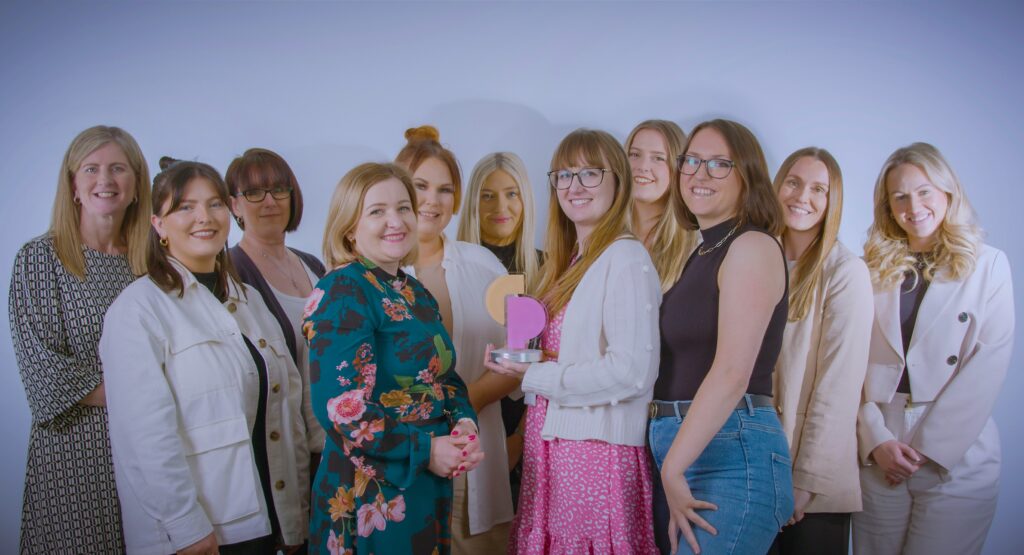Progeny is passionate about wellbeing, embedding it into all aspects of the business and making it a long-term investment. This robust wellbeing strategy and ongoing commitment to putting its people first saw Progeny win the 2022 Culture Pioneers Wellbeing Award.
 Now, Sam Moxham, Chief People Officer, shares how the company continues to position employee and client wellbeing at the heart of Progeny’s culture and nurture this central tenet.
Now, Sam Moxham, Chief People Officer, shares how the company continues to position employee and client wellbeing at the heart of Progeny’s culture and nurture this central tenet.
Is wellbeing crucial to your company culture? The entry period for the 2023 Culture Pioneer Awards is now open.
Why are you so committed to employee wellbeing and the need for long-term investment in this?
It’s something that I’ve always been passionate about. I’ve had coaches of all varieties, for as long as I can remember and I’m very into self help, self learning and mental health. It’s something I’ve always wanted to do but I didn’t know where to start with it.
We put some ideas together and came up with the idea of ‘Wellbeing Champions’ before COVID hit. But it really kicked in during the pandemic and it’s one of the things I’m most proud of, because I really felt that it was meaningful.
Our Wellbeing Champions called every single person in the business to make sure they were okay and I think that had a really positive impact.
I’ve had coaches of all varieties, for as long as I can remember and I’m very into self help, self learning and mental health
What does it mean to have won the 2022 Culture Pioneers Wellbeing Award?
Employee and client wellbeing is at the heart of Progeny’s culture so I’m really proud that we’ve been recognised as the winner in this category. A genuine commitment to wellbeing has to be a long-term investment but I believe it’s integral to business resilience and adaptability.
A lot has happened in the year since your award entry was submitted. How have challenges such as the cost of living crisis impacted your employees and how are you addressing these issues?
It’s definitely had an impact and people talk about it but it’s also a really private matter so it’s a balancing act.
In terms of salaries, we’re doing a really comprehensive salary benchmarking exercise, which will lead to a pay increase – I want people to feel like they’re being treated fairly and consistently.
We launched a helping hand grant so that if you are having problems paying your bills, you can complete a really quick application, which is not at all personal and the company will give you up to £500 to help to pay your bills. We are also working to be more flexible, particularly with families and carers.
Employee and client wellbeing is at the heart of Progeny’s culture so I’m really proud that we’ve been recognised as the winner in this category
What are some of the progressive ideas you’ve implemented at Progeny recently?
We have lots of different forums where people can offer feedback, and our monthly town hall is one of them. This is offered to every single person and is business orientated for the shortest amount of time and people orientated for the rest.
We have quizzes, dressing up, discussions during ‘Thrive week’, dogs coming into the office on certain weeks, and fun polls. We try to make it interesting and to connect everybody together.
We do a lot on menopause awareness and support; we have an amazing menopause cafe, which is a forum where all of the women feel able to talk.
Not everything works but when something does, we do it really well. We’re not afraid to make mistakes and it doesn’t have to be perfect – it’s about how we can make a difference and what we can do more of.
A genuine commitment to wellbeing has to be a long-term investment but I believe it’s integral to business resilience and adaptability
Is there a standout lesson you’ve learned?
An important one for me is my naivety around diversity. Although I feel very passionately about it, I think I have a bias towards women in business and, although that is a wonderful element, it’s a tiny part of what we need to do in terms of change. Also, you’ve got to make meaningful change, not instant snap decisions when it comes to diversity.
We need lasting, sustainable things in our business that are going to make a difference in diversity. We’ve scrapped all of the short-tem stuff and put a programme in place this year with the support of people who know more than us. I wish I’d done that sooner.
Not everything works but when something does, we do it really well. We’re not afraid to make mistakes and it doesn’t have to be perfect
What advice would you give people teams that are earlier on in their journey to improve company culture and employee wellbeing?
It’s absolutely essential that you have the ear of the board or the CEO, and that you start with the foundations of what you want to do straightaway. Because without those foundations, you can’t do culture, you can’t do diversity; you can’t do any of the good stuff.
So all of the compliance-related, HR stuff needs to be done. I firmly believe you should wrap all of the boring stuff up into a box with a nice bow and say, there you go and then no one has to worry about it. We’ve got really low disciplinary rates because the foundations are so well dealt with.
Another thing I’ve learned is don’t do everything at once. You can’t set out a plan that’s meaningful. You need to ask people what they want. Don’t just assume, and then do things that are meaningful and communicate well.
[embed-slice:61]






